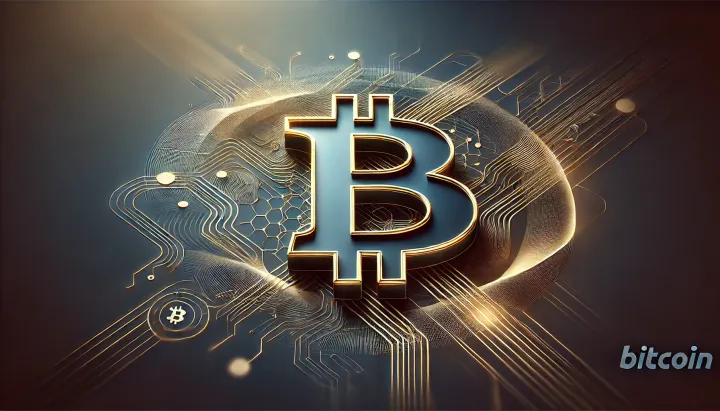Bitcoin: Breaking Free from Control – A Former Cult Member’s Perspective
The October 10, 2024 episode of the Bitcoin for Millenials podcast featured Michael Peyton, a former cult member, discussing his journey from being involved in a cult to discovering Bitcoin and why he sees Bitcoin as the antithesis of cult-like control.

Briefing Notes
My 'briefing notes' summarize the content of podcast episodes; they do not reflect my own views. If you have comments about this briefing note, please leave a comment below (requires signing up for a free blog subscription). Note that some of the podcast episodes I summarize may be sponsored: don't trust, verify, if the information you are looking for is to be used for decision-making.
Summary
The October 10, 2024 episode of the Bitcoin for Millenials podcast features Michael Peyton, a former cult member, who shares his views on Bitcoin as the antithesis of cult-like control. Peyton draws parallels between the authoritarianism he experienced within a cult and the centralized control embedded in fiat currency systems. He presents Bitcoin as a revolutionary, decentralized system that empowers individuals, particularly in economically oppressed regions, by offering financial freedom and autonomy. The conversation emphasizes Bitcoin’s potential to disrupt the current global monetary system and the inevitable resistance it will face from political and financial institutions.
Take-Home Messages
- Bitcoin fosters financial autonomy, acting as a trustless system beyond the control of central authorities.
- Fiat money systems perpetuate economic oppression, particularly in third-world countries where monetary control limits financial independence.
- Bitcoin’s decentralized nature challenges traditional monetary systems, providing individuals with unprecedented control over their financial futures.
- Governments and institutions will resist Bitcoin due to its potential to undermine centralized financial power, but Bitcoin’s adoption is inevitable as its benefits become clearer.
- Bitcoin’s fixed supply positions it as a long-term store of value, offering a hedge against inflation and the instability of fiat currencies.
Overview
In this episode of Bitcoin for Millennials, former cult member Michael Peyton shares his unique journey from being controlled within a cult to discovering the financial autonomy offered by Bitcoin. Peyton describes how cults, much like centralized financial systems, rely on controlling people’s thoughts and actions. His story underscores the contrast between authoritarianism and Bitcoin’s decentralized, trustless system, which gives individuals financial freedom. The episode dives deep into the themes of groupthink, control, and autonomy, framing Bitcoin as a liberating force in a world dominated by fiat currencies.
The discussion highlights the failures of fiat currency systems, particularly their inflationary nature, and the resulting economic oppression in regions like Africa and Latin America. Peyton presents Bitcoin as a spiritual and revolutionary movement that can empower individuals by offering a deflationary, limited-supply asset that is free from manipulation.
Despite the optimism, the episode does not shy away from the challenges Bitcoin faces, especially from governments and financial institutions that benefit from centralized control. Peyton and Kanstein explore how resistance to Bitcoin is rooted in a desire to maintain the status quo, yet they remain confident that as more people understand Bitcoin’s benefits, its global adoption will accelerate.
Stakeholder Perspectives
- Policymakers: Likely to resist Bitcoin’s adoption due to its decentralized nature, which threatens the traditional control of fiat systems. Some may consider integrating Bitcoin into national economies as a response to growing economic instability.
- Financial Institutions: Face disruption from Bitcoin but also see opportunities for integration. Early adopters could gain a significant edge in emerging markets, while others risk being left behind.
- Investors: Bitcoin provides a hedge against inflation and fiat instability, making it an attractive long-term investment, particularly in volatile economies.
- Developing Economies: Bitcoin offers a chance to break free from economic oppression by providing a stable, decentralized currency that cannot be manipulated by external forces.
Implications
The decentralized and trustless nature of Bitcoin offers a path forward for regions suffering from economic instability and fiat currency collapse. For policymakers, integrating Bitcoin into national financial strategies could stabilize economies that are heavily reliant on volatile fiat currencies. However, the resistance from governments and institutions invested in centralized control will likely slow Bitcoin’s global adoption.
For financial institutions, Bitcoin presents both a threat and an opportunity. Those that adapt and integrate Bitcoin into their services will gain a competitive edge, particularly in regions where fiat currencies are collapsing. Investors who recognize Bitcoin’s long-term potential will likely view it as a hedge against inflation and fiat instability, positioning it as a key store of value in uncertain times.
Future Outlook
The growing instability of fiat currencies will likely drive more individuals and institutions toward Bitcoin, particularly in regions where economic collapse is imminent. Bitcoin’s deflationary nature and decentralized structure make it a unique alternative to fiat money, and as more people understand its benefits, its adoption will continue to grow. However, political resistance from governments seeking to maintain control will pose a significant hurdle to widespread acceptance.
The technological infrastructure needed for Bitcoin’s global adoption, particularly in underdeveloped regions, must improve. Bitcoin’s potential to serve as a global reserve currency hinges on its ability to overcome political, institutional, and technological barriers. The discussants believe that Bitcoin’s rise is inevitable, driven by its ability to provide financial autonomy and stability in an increasingly unstable world.
Information Gaps
- How can Bitcoin be utilized to increase financial autonomy for individuals in regions where fiat currencies have collapsed? This is critical for understanding Bitcoin's role in offering an alternative to fiat money in regions facing economic collapse. As fiat systems continue to fail, Bitcoin could become a lifeline, but more research is needed on how to support its integration in these areas.
- What are the economic implications of a widespread collapse of fiat currencies, and how could Bitcoin serve as a lifeline in such a scenario? This question explores the broader economic impacts of fiat currency instability and how Bitcoin could replace collapsing financial systems. Understanding Bitcoin's potential in crisis situations is key for policymakers and investors alike.
- What are the main political barriers preventing Bitcoin from achieving wider adoption in both developed and developing countries? Political resistance is a significant challenge for Bitcoin’s adoption. Addressing these barriers is essential for building effective strategies that facilitate the transition from fiat to Bitcoin.
- How can Bitcoin’s trustless system be integrated into traditional financial markets to enhance transparency and reduce fraud? This question addresses Bitcoin’s potential to improve financial systems globally. Integration into traditional markets could enhance transparency and reduce fraud, benefiting both investors and institutions.
- What infrastructure is needed to enable seamless Bitcoin usage in countries with limited technological resources? Infrastructure development is essential for Bitcoin’s widespread adoption. Understanding the technological requirements for Bitcoin to thrive in underdeveloped regions is a critical research area for both private companies and policymakers.
Broader Implications
Bitcoin’s Role in Global Financial Autonomy
Bitcoin's decentralized nature offers a unique opportunity to reshape global financial systems. Its trustless, deflationary system can provide financial independence, particularly in regions suffering from the control and manipulation of fiat currencies. As developing countries face ongoing monetary instability, Bitcoin presents a path to economic empowerment, allowing individuals to store and transfer wealth without relying on corrupt governments or unstable financial institutions.
Disruption of Centralized Control
The political and economic power structures that rely on controlling the money supply may face significant disruption due to Bitcoin. As it becomes more widely adopted, governments and financial institutions may lose their ability to influence economic outcomes through inflation or monetary policy manipulation. This shift could lead to a more transparent and equitable financial landscape, but also increase tension between decentralized financial systems and existing authorities.
Opportunities for Developing Economies
For countries with limited access to stable currencies, Bitcoin represents a potential breakthrough. By offering a secure and finite asset, Bitcoin could help people in these regions preserve their wealth and engage with the global economy. This could reduce economic dependency on dominant countries that control currency issuance, leveling the playing field for developing economies and fostering greater financial inclusion.
Resistance from Existing Institutions
As Bitcoin gains momentum, political resistance from governments and traditional financial institutions is likely to intensify. These entities rely on controlling the monetary system, and Bitcoin represents a threat to their established power structures. The extent to which Bitcoin can overcome regulatory challenges will depend on strategic advocacy and the development of legal frameworks that support its integration into global financial systems.



Comments ()